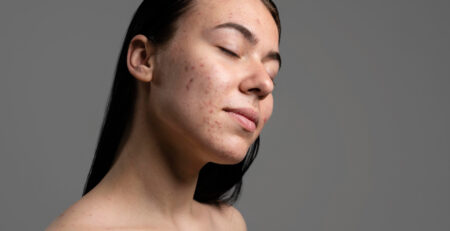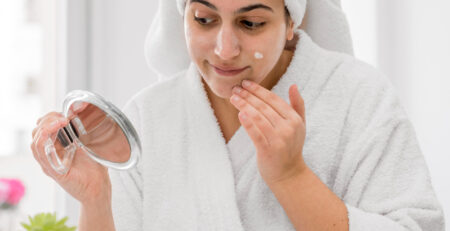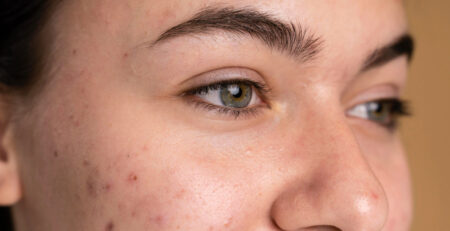How to Get a Radiant and Glowing Complexion
Achieving a radiant and glowing complexion is a goal for many people. A healthy glow indicates that your skin is well-nourished and cared for. There are various methods to attain this desirable skin condition, ranging from proper skincare routines to lifestyle changes. This article will explore the most effective ways to get that radiant and glowing complexion you desire.
Understand Your Skin Type
Before diving into specific skincare routines, it is crucial to understand your skin type. There are generally four skin types: oily, dry, combination, and sensitive. Knowing your skin type will help you choose the right products and treatments.
Oily Skin: Produces excess sebum, leading to a shiny appearance and potential acne.
Dry Skin: Lacks moisture, often resulting in flakiness and tightness.
Combination Skin: Features both oily and dry areas, typically with an oily T-zone.
Sensitive Skin: Reacts easily to products, often experiencing redness and irritation.
Cleanse Your Skin Properly
Cleansing is the foundation of any good skincare routine. It removes dirt, oil, and impurities from your skin, preventing breakouts and dullness.
Choose the Right Cleanser: Select a cleanser suitable for your skin type. For instance, a gel-based cleanser works well for oily skin, while a cream-based one is better for dry skin.
Double Cleansing: This method involves using an oil-based cleanser first to remove makeup and sunscreen, followed by a water-based cleanser to clean the skin deeply.
Avoid Over-Cleansing: Washing your face too often can strip your skin of its natural oils, leading to dryness and irritation. Twice a day is sufficient.
Exfoliate Regularly
Exfoliation helps remove dead skin cells, revealing a fresh and radiant complexion underneath. It also allows other skincare products to penetrate better.
Physical Exfoliants: These include scrubs with small particles that physically slough off dead skin. Use them gently to avoid irritation.
Chemical Exfoliants: These contain acids like AHA (alpha hydroxy acid) and BHA (beta hydroxy acid) that dissolve dead skin cells. They are effective and often less abrasive than physical exfoliants.
Frequency: Exfoliate 1-2 times a week, depending on your skin type and sensitivity.
Hydrate and Moisturize
Hydration is key to glowing skin. Well-hydrated skin looks plump, smooth, and radiant.
Use a Hydrating Toner: A good toner can replenish moisture and prepare your skin for the next steps in your routine.
Serums: Serums with hyaluronic acid or glycerin can deeply hydrate your skin. They are lightweight and absorb quickly.
Moisturizers: Choose a moisturizer that suits your skin type. Oily skin may benefit from a gel-based moisturizer, while dry skin may need a thicker cream.
Protect Your Skin from the Sun
Sun protection is crucial for maintaining a radiant complexion. UV rays can cause damage, leading to premature aging, dark spots, and dullness.
Sunscreen: Use a broad-spectrum sunscreen with at least SPF 30 every day, even on cloudy days. Reapply every two hours if you are outside.
Protective Clothing: Wear hats, sunglasses, and protective clothing to shield your skin from direct sunlight.
Avoid Peak Sun Hours: Try to stay out of the sun between 10 a.m. and 4 p.m., when UV rays are strongest.
Incorporate Antioxidants
Antioxidants can protect your skin from damage caused by free radicals, which contribute to aging and dullness.
Vitamin C: This powerful antioxidant can brighten your skin and even out your complexion. Use a vitamin C serum in the morning before applying sunscreen.
Vitamin E: It helps moisturize and protect your skin. Many moisturizers contain vitamin E.
Green Tea: Green tea extract can reduce inflammation and protect against UV damage. Look for skincare products containing this ingredient.
Maintain a Healthy Diet
What you eat reflects on your skin. A balanced diet can significantly contribute to a glowing complexion.
Hydrate: Drink plenty of water to keep your skin hydrated from within.
Eat Fruits and Vegetables: These are rich in vitamins, minerals, and antioxidants. Berries, citrus fruits, and leafy greens are particularly beneficial.
Healthy Fats: Omega-3 fatty acids found in fish, nuts, and seeds can help maintain your skin’s lipid barrier, keeping it supple and glowing.
Limit Sugar and Processed Foods: These can cause inflammation and breakouts, leading to a dull complexion.
Get Enough Sleep
Sleep is crucial for skin health. During sleep, your skin repairs itself, making it essential for a radiant complexion.
7-9 Hours of Sleep: Aim for at least 7-9 hours of quality sleep each night.
Establish a Sleep Routine: Go to bed and wake up at the same time every day.
Sleep on Your Back: Sleeping on your back can prevent wrinkles caused by pillow pressure.
Manage Stress
Stress can negatively impact your skin, leading to breakouts and dullness. Finding ways to manage stress can improve your skin’s appearance.
Exercise Regularly: Physical activity can reduce stress and improve blood circulation, giving your skin a healthy glow.
Meditation and Yoga: These practices can help calm your mind and reduce stress levels.
Hobbies and Relaxation: Engage in activities that you enjoy and help you relax.
Avoid Smoking and Limit Alcohol
Smoking and excessive alcohol consumption can wreak havoc on your skin. They can cause premature aging, dryness, and a lackluster complexion.
Quit Smoking: Smoking reduces blood flow to the skin, depriving it of oxygen and nutrients.
Limit Alcohol: Alcohol dehydrates your skin and can cause inflammation. Drink in moderation and hydrate with water.
Use Face Masks
Face masks can provide an extra boost of nutrients and hydration to your skin. Incorporate them into your routine once or twice a week.
Hydrating Masks: Look for masks with ingredients like hyaluronic acid, aloe vera, and glycerin.
Clay Masks: These are great for oily and acne-prone skin, as they absorb excess oil and impurities.
Sheet Masks: These are soaked in serum and can deliver intense hydration and nutrients to your skin.
Consistent Skincare Routine
Consistency is key to achieving and maintaining a radiant complexion. Stick to your skincare routine and give products time to work.
Morning Routine: Cleanse, tone, apply serum, moisturize, and use sunscreen.
Night Routine: Cleanse, tone, apply serum, and moisturize. You can also add treatments like retinol or night creams.
Professional Treatments
Sometimes, professional treatments can help achieve your skincare goals faster. Consult with a dermatologist or esthetician to find the best options for you.
Facials: Regular facials can deep clean your skin and provide targeted treatments.
Chemical Peels: These can exfoliate your skin more deeply than at-home products, improving texture and tone.
Laser Treatments: These can address issues like hyperpigmentation, fine lines, and acne scars.
Conclusion
Achieving a radiant and glowing complexion is a combination of good skincare practices, healthy lifestyle choices, and consistency. By understanding your skin type, cleansing properly, exfoliating, hydrating, and protecting your skin from the sun, you can significantly improve your skin’s appearance. Additionally, maintaining a healthy diet, getting enough sleep, managing stress, and avoiding harmful habits like smoking can further enhance your skin’s natural glow. Incorporate these tips into your daily routine, and you’ll be on your way to achieving a radiant and glowing complexion.











